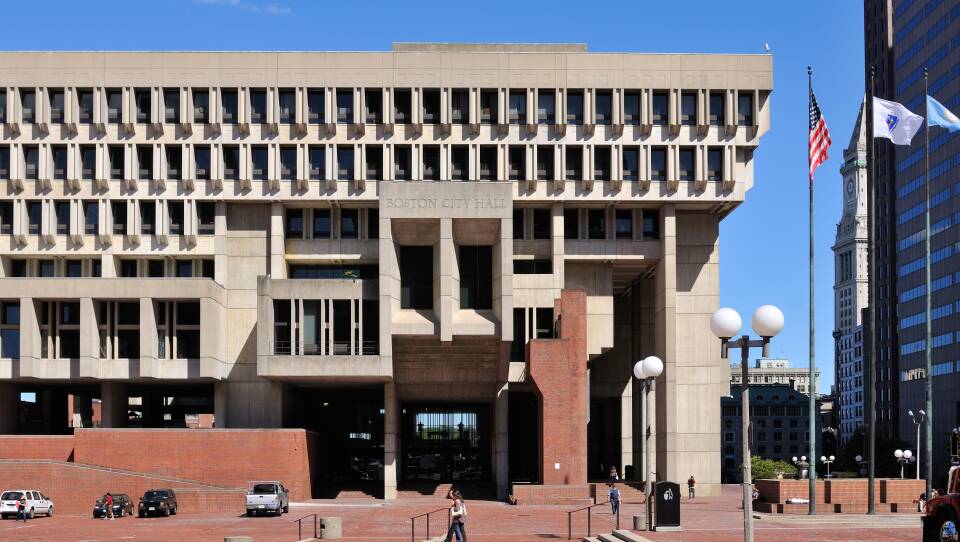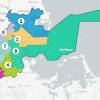The foggy scramble to redraw Boston’s federally rejected voting map played out in real time Monday during a City Council hearing that featured a more than an hour and a half–long recess and tense exchanges regarding the map-making process.
The meeting came as Mayor Michelle Wu proposed her own map to criticism from advocacy organizations, including the NAACP Boston Branch, Lawyers for Civil Rights and the Chinese Progressive Association. The groups slammed the plan as a “regressive” one that breaks up neighborhoods where traditionally marginalized populations live in order to keep South Boston and the southeastern-most portions of Dorchester united.
“In what is akin to a ‘Make Boston Great Again’ proposal, the new map threatens decades of progress,” the coalition’s statement said. “We believe that neighborhoods should be unified and that historically disenfranchised communities of interest should not be used as political stepping stones.”
A spokesperson for the mayor responded, saying in a statement that her primary goal has been to help speed up the timeline for approving a newly redrawn map in order to finalize who votes where in time for this year’s local elections.
Boston is scheduled to have preliminary elections September 12 and a general election November 7. Wu has indicated a map must be in place by the end of the month in order to guarantee they are smooth and secure elections.
“With such a compressed timeline, it is especially urgent to put aside inaccurate and incendiary rhetoric, and instead focus on proposing concrete maps for public analysis and consideration,” said spokesperson Ricardo Patrón.

In addition to Wu, Councilors Ruthzee Louijeune and Kendra Lara each filed their own maps, forcing the politically fractured council to consider multiple proposals.
Lara said Monday her goal was to draw a map that respects the court ruling while making minimal changes to the now-barred map.
Councilors also questioned whether Monday’s discussion effectively moved the task of redrawing another political map away from the Redistricting Committee, chaired by Councilor Liz Breadon, to the Civil Rights and Immigrant Advancement Committee under the leadership of Councilor Ruthzee Louijeune.
Council President Ed Flynn said Monday he intended to refer redistricting matters to Louijeune’s leadership, rather than assigning them to the council’s redistricting committee.
“I hope we all can agree that on Wednesday when there are maps, that they will go into the civil rights committee and that Councilor Louijeune, as chair, will conduct those hearings,” Flynn said. “I think what the residents are now looking for is leadership from us as a body and no drama and no personalities ... and doing what is best for the residents of Boston.”
“That’s certainly not what I voted on doing,” said former Redistricting Committee chair Ricardo Arroyo.
“This feels kinda like a bait and switch here,” said At-Large Councilor Julia Mejia, echoing the confusion.
“This is exactly why this body is becoming an embarrassment,” said Councilor Michael Flaherty, remarking on the lack of clarity.
The session opened with the full complement of sitting councilors debating whether the body would expose itself to open meeting law violations if members discussed specific map proposals.
Although three maps were filed, none are technically a part of the City Council’s record until the matters are addressed at the regular Wednesday meeting when members meet to assign, deliberate and vote on filed matters.
The Council’s next meeting is Wednesday, May 17.








